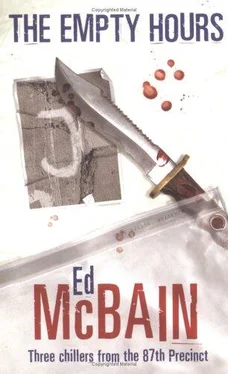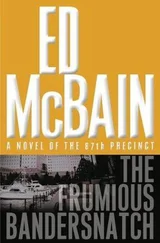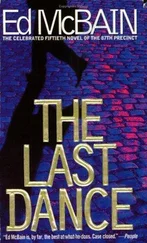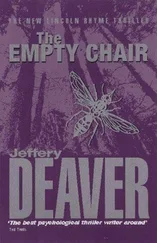“Jacob,” Meyer corrected.
“Yaakov, Jacob, what’s the difference? The killer was bold enough to presume there were plenty of people who felt exactly the way he did. He painted that J on the wall and dared us to find which Jew-hater had done the job.” Carella paused. “Does this bother you very much, Meyer?”
“Sure, it bothers me.”
“I mean, my saying —”
“Don’t be a boob, Steve.”
“Okay. I think we ought to look up this woman again. What was her name? Hannah something. Maybe she knows —”
“I don’t think that’ll help us. Maybe we ought to talk to the rabbi’s wife. There’s indication in his diary that he knew the killer, that he’d had threats. Maybe she knows who was baiting him.”
“It’s four o’clock in the morning,” Carella said. “I don’t think it’s a good idea right now.”
“We’ll go after breakfast.”
“It won’t hurt to talk to Yirmiyahu again, either. If the rabbi was threatened, maybe —”
“Jeremiah,” Meyer corrected.
“What?”
“Jeremiah. Yirmiyahu is Hebrew for Jeremiah.”
“Oh. Well, anyway, him. It’s possible the rabbi took him into his confidence, mentioned this —”
“Jeremiah,” Meyer said again.
“What?”
“No.” Meyer shook his head. “That’s impossible. He’s a holy man. And if there’s anything a really good Jew despises, it’s —”
“What are you talking about?” Carella said.
“— it’s killing. Judaism teaches that you don’t murder, unless in self-defense.” His brow suddenly furrowed into a frown. “Still, remember when I was about to light that cigarette? He asked me if I was Jewish — remember? He was shocked that I would smoke on the second day of Passover.”
“Meyer, I’m a little sleepy. Who are you talking about?” Carella wanted to know.
“Yirmiyahu. Jeremiah. Steve, you don’t think —”
‘I’m just not following you, Meyer.”
‘You don’t think ... you don’t think the rabbi painted that wall himself, do you?”
“Why would ... what do you mean?”
“To tell us who’d stabbed him? To tell us who the killer was?”
“How would —”
“Jeremiah,’ Meyer said.
Carella looked at Meyer silently for a full thirty seconds. Then he nodded and said,“J.”
He was burying something in the back yard behind the synagogue when they found him. They had gone to his home first and awakened his wife. She was an old Jewish woman, her head shaved in keeping with the Orthodox tradition. She covered her head with a shawl, and she sat in the kitchen of her ground-floor apartment and tried to remember what had happened on the second night of Passover. Yes, her husband had gone to the synagogue for evening services. Yes, he had come home directly after services.
“Did you see him when he came in?” Meyer asked.
“I was in the kitchen,” Mrs. Cohen answered. “I was preparing the seder. I heard the door open, and he went in the bedroom.”
“Did you see what he was wearing?”
“No.”
“What was he wearing during the seder?”
“I don’t remember.”
“Had he changed his clothes, Mrs. Cohen? Would you remember that?”
“I think so, yes. He had on a black suit when he went to temple. I think he wore a different suit after.” The old woman looked bewildered. She didn’t know why they were asking these questions. Nonetheless, she answered them.
“Did you smell anything strange in the house, Mrs. Cohen?”
“Smell?”
“Yes. Did you smell paint?”
“Paint? No, I smelled nothing strange.”
They found him in the yard behind the synagogue.
He was an old man with sorrow in his eyes and in the stoop of his posture. He had a shovel in his hands, and he was patting the earth with the blade. He nodded, as if he knew why they were there. They faced each other across the small mound of freshly turned earth at Yirmiyahu’s feet.
Carella did not say a solitary word during the questioning and arrest. He stood next to Meyer Meyer, and he felt only an odd sort of pain.
“What did you bury, Mr. Cohen?” Meyer asked. He spoke very softly. It was five o’clock in the morning, and night was fleeing the sky. There was a slight chill on the air. The wind seemed to penetrate to the sexton’s marrow. He seemed on the verge of shivering. “What did you bury, Mr. Cohen? Tell me.”
“A ritual object,” the sexton answered.
“What, Mr. Cohen?”
“I have no further use for it. It is a ritual object. I am sure it had to be buried. I must ask the rov. I must ask him what the Talmud says.” Yirmiyahu fell silent. He looked at the mound of earth at his feet. “The rov is dead, isn’t he?” he said, almost to himself. “He is dead.” He looked sadly into Meyer’s eyes.
“Yes,” Meyer answered.
“Baruch dayyan haemet” Yirmiyahu said. “You are Jewish?”
“Yes,” Meyer answered.
“Blessed be God the true judge,” Yirmiyahu translated, as if he had not heard Meyer.
“What did you bury, Mr. Cohen?”
“The knife,” Yirmiyahu said. “The knife I used to trim the wick. It is a ritual object, don’t you think? It should be buried, don’t you think?” He paused. “You see ...” His shoulders began to shake. He began weeping suddenly. “I killed,” he said. The sobs started somewhere deep within the man, started wherever his roots were, started in the soul of the man, in the knowledge that he had committed the unspeakable crime — thou shalt not kill, thou shalt not kill. “I killed,” he said again, but this time there were only tears, no sobs.
“Did you kill Arthur Finch?” Meyer asked.
The sexton nodded.
“Did you kill Rabbi Solomon?”
“He… you see ... he was working. It was the second day of Passover, and he was working. I was inside when I heard the noise. I went to look and ... he was carrying paints, paint cans in one hand, and…a ladder in the other. He was working. I ... took the knife from the ark, the knife I used to trim the wick. I had told him before this. I had told him he was not a real Jew, that his new… his new ways would be the end of the Jewish people. And this, this! To work on the second day of Passover!”
“What happened, Mr. Cohen?” Meyer asked gently.
“I — the knife was in my hand. I went at him with the knife. He — he tried to stop me. He threw paint at me. I — I —” The sexton’s right hand came up as if clasped around a knife. The hand trembled as it unconsciously re-enacted the events that night. “I cut him. I cut him.... I killed him.”
Yirmiyahu stood in the alley with the sun intimidating the peaks of the buildings now. He stood with his head bent, staring down at the mound of earth which covered the buried knife. His face was thin and gaunt, a face tormented by the centuries. The tears still spilled from his eyes and coursed down his cheeks. His shoulders shook with the sobs that came from somewhere deep in his guts. Carella turned away because it seemed to him in that moment that he was watching the disintegration of a man, and he did not want to see it.
Meyer put his arm around the sexton’s shoulder.
“Come, tsadik? he said. “Come. You must come with me now.”
The old man said nothing. His hands hung loosely at his sides.
They began walking slowly out of the alley. As they passed the painted J on the synagogue wall, the sexton said, “Olov ha-shalom.”
“What did he say?” Carella asked.
“He said, ‘Peace be upon him.’ “
“Amen,” Carella said.
They walked silently out of the alley together.
Читать дальше












